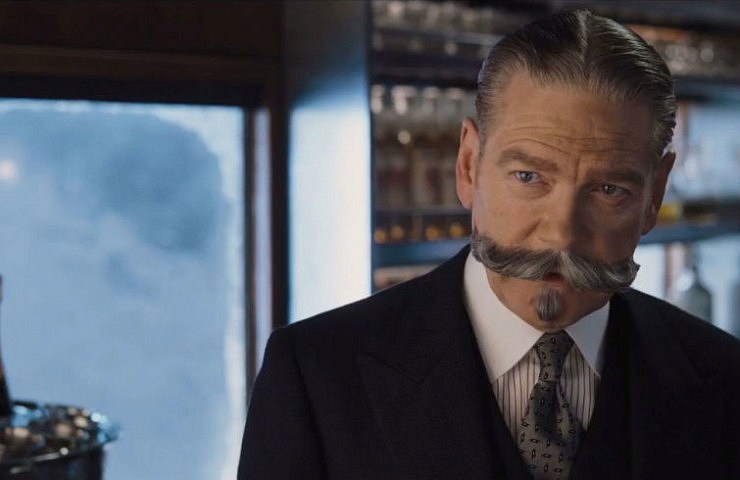I think we can all recall a time we had to read and watch Shakespeare’s “Hamlet” in AP Lit, senior year of high school. Arguably, this was one of many people’s favorites. The long monologues, the confusing language and format Shakespeare used are hard to forget. Sometimes, it truly felt like the beauty of his writing was only there to confuse us. The complexity of his characters, especially that of Hamlet’s, was one of the most intriguing parts of the play. In the 1996 remake, the play was dramatized in a much more cinematic aspect, with the great Kenneth Branagh’s direction, and his portrayal of the role of Hamlet himself. Because, who could play the lead role of a direction better than the director?
Fast forward, and we are blessed with the new make of “Murder on the Orient Express,” directed and starring (of course) Kenneth Branagh as detective Hercule Poirot. This is the third film adaptation of the best-selling novel by Agatha Christie, involving her most famous reoccurring character, Poirot. The first two films were very different from each other, and not necessarily true to the excitement and originality of the novel. To no surprise, the movie was intriguing and kept the audience leaning at the edge of their seats. I was amazed by the beautiful scenery displayed in Jerusalem and Istanbul. The representation of the different cultures and religions is prevalent, having the movie introduced by Poirot investigate in front of the Walls of Jerusalem, a priest, an imam and a rabbi. It is clear that Branagh has been and will continue to be a talented director, and of course, as he would agree, a talented actor as well.
Before entering the theater, I decided to take a look at the movies ratings. Although, it was surely far too late to return my tickets now if it turned out to have outrageously low reviews. I was surprised to discover that a cast comprised of such renowned actors like Johnny Depp, Michelle Pfeiffer, Penelope Cruz, Judi Dench, and our new Star Wars favorite, Daisy Ridley didn’t receive enormous gratification. I was also shocked to see the 59% given by Rotten Tomatoes. Going in, I didn’t know what to expect. Was it just going to be a bad film, or was Rotten Tomatoes a bit too harsh?
To no surprise, I am seated by this man who thinks it’s appropriate to fall asleep halfway through the movie, snoring his loudest. I can’t seem to focus on the backstories of each passenger on the train. Slowly, the film continues to draw each connection of the passengers to one another and I can’t help but feel that there is some lack of depth in the characters. Although we learn about each one, and how they are connected, Branagh doesn’t seem to elaborate and make the audience empathize with the hardships they have endured. The issue is that Branagh made it clear that the main character of the film wasn’t the passengers and the suspects of the gruesome murder, but merely about Poirot (or Branagh), the best detective in the world.
The movie lacked the depth of emotion and feeling. The novel, and the first movie released under the same name, were reviewed to be more exhilarating and surprising, having the audience exposed to the fact that humans are capable of malice despite being “good people”.
As for Kenneth Branagh, I am not stunned that this Shakespeare-loving egoist starred in his own film, although he does know how to pull off a great mustache.





Recent Comments